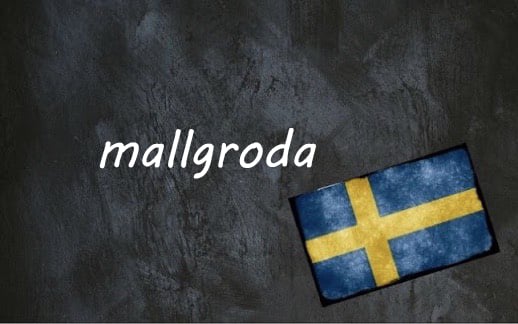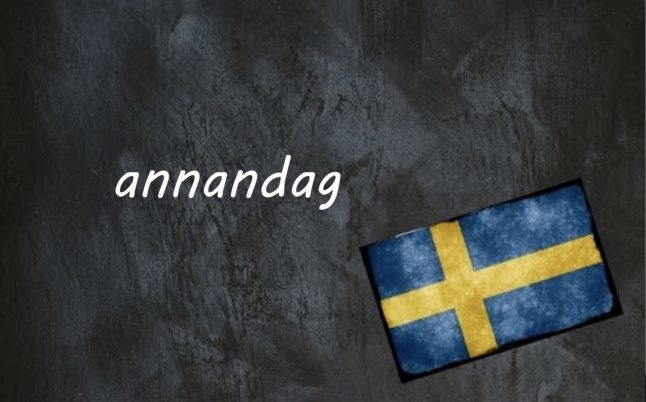Mallgroda literally means ‘cocky frog’, but it is simply another way of saying that someone is cocky.
Mallig means cocky, but this word has been attested as far back as 1912. It comes from the expression to malla sig which in turn comes from a dialectal baking term, malle, which means ‘core; marrow; inside of bread (which lifts and ferments)’.
So it describes the bit that is fermenting and puffing itself up, much like a cocky person. It’s little surprise then that before 1912 the word that Swedes used instead of mallig was jäsig, which means ‘yeasty’.
But why frog? Well, that is to be found in the second meaning of groda in Swedish, a meaning which supposedly is drawn from a folktale about the frogs that jumped out of the wicked daughter’s mouth when she laughed. In this sense a groda means a ‘blunder’, as in someone accidentally saying something inaccurate, often something embarrassing.
So a mallgroda is literally a yeasty frog, but really a cocky, blundering embarrassment or, perhaps more succinctly, a person who is boisterous, yet full of nonsense.
Being by now, as many of you are, experts of Sweden, you know that no Swede likes a boisterous person – it violates the Law of Jante. Yet calling someone a mallgroda doesn’t really count as harsh invective. In fact, if you tried to use it on someone seriously, they would probably laugh in your face.
Mallgroda is most often used jokingly when someone is being a bit boisterous, which obviously is also most often only done tongue-in-cheek, because how many Swede would actually brag about themselves? (Except for Zlatan, of course, but that is ok, because there is only one Zlatan, as he so often says.)
Mallgroda is also frequently used in Astrid Lindgren’s famous work Madicken, which you can watch right now on SVT Play, but hurry up, there is only one day left of Season 1, although these series tend to return.
Practice using mallgroda when a colleague or friend is feeling just a little bit too good about what they have achieved, and mentions it once too often. As a good Swede, you cannot have that.
Best of luck!
Example sentences:
Nä, nu får du va tyst, din lilla mallgroda!
Ok, quiet down now, you little show-off!
Nu ska du inte komma här och tro, din mallgroda!
Don’t come here thinking you’re all that, you show-off!
Villa, Volvo, Vovve: The Local’s Word Guide to Swedish Life, written by The Local’s journalists, is now available to order. Head to lysforlag.com/vvv to read more about it. It is also possible to buy your copy from Amazon US, Amazon UK, Bokus or Adlibris.



 Please whitelist us to continue reading.
Please whitelist us to continue reading.
Member comments